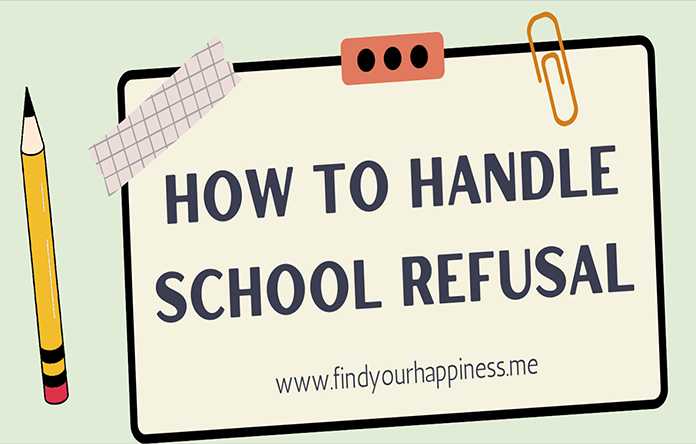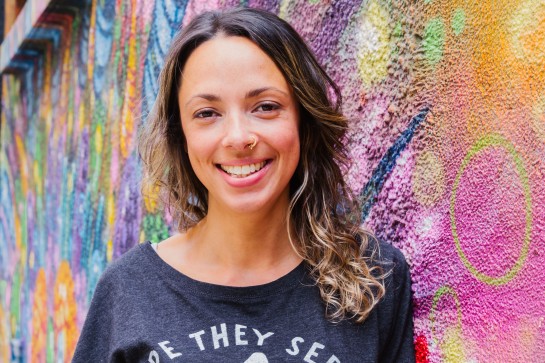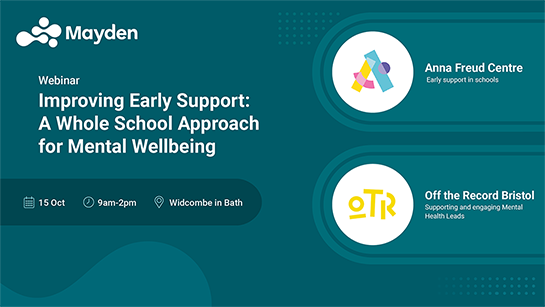
We recently welcomed Cat Taylor, registered occupational therapist and children’s psychotherapist to our latest sharing and learning webinar. Cat joined us to discuss emotionally based school avoidance (EBSA) in children and young people (CYP).
With over 10 years experience working in mental health services, Cat now runs her own business, Find Your Happiness, specialising in school avoidance, and helping CYP find their meaning in life.
You can find the full recording of the webinar here.

How to handle school refusal:
Emotionally based school avoidance (EBSA) occurs when CYP struggle to attend school due to negative emotions and anxiety. It can develop gradually over time, or occur suddenly. EBSA is more than school refusal, it is a response to overwhelming emotions beyond the control of the young person.
People express distress in various ways and CYP may do this by avoiding school, to show they need some support in understanding the complex world around them. For example, anxiety about making friends, navigating the school environment, or fear of teachers can contribute to EBSA. This can create a perpetuating cycle of emotional and physical distress.
Cat shared some practical tips, featuring the why, the what and the how, that can be used to support children experiencing EBSA and help them to identify and express their distress constructively.
Explore Cat’s slides from the webinar:
Why do CYP feel anxious about school?
- Neuroscience can explain why some CYP avoid school; their brains may perceive school as a threat, which triggers a fight or flight response, as opposed to a calm, rational one. You can help them understand their brains and practise calming techniques to allow them to act more rationally when experiencing anxious feelings.
- Explain the ‘stress bucket’ to children and young people; anxious feelings around school can fill the bucket and cause them to feel overwhelmed. You can help children understand their stress levels and teach techniques on how to manage them so that they are able to empty the bucket.
- For many young people, school is a really uncomfortable situation that they do not want to be in. Supporting them to think about the bigger picture and understanding the point of attending can help them find a way forward.
What can you do to support?
- Naming the elephant in the room is one of the most useful things that can be done. By talking openly about emotions, you can help children understand and overcome them.
- Teach grounding and mindfulness techniques, explain how they are supposed to work and support CYP in practising them. This helps them to drop an anchor and stay grounded when going through difficult feelings.
- Use the velcro analogy – difficult feelings act like sticky velcro; they stick to us and are hard to shake off, but there is always a way to step back and unhook them. Teach young people unhooking tools to help them detach from their anxiety.
- Help them understand they have a choice – everyone can choose how they want to react and who they want to be, even in challenging situations.
- Supporting young people as early as possible can also help them overcome EBSA. Read here about early mental health support for CYP.
Practical tips to overcome EBSA
- Teach CYP to use a feelings wheel and turn towards their emotions. Distraction techniques can cause the feelings to become more powerful the more we avoid things, so helping children accept their feelings as normal allows them to deal with them more effectively.
- Help young people understand why they are doing things. Be imaginative and interactive in sessions when going through calming and regulating techniques. By making it more fun, children are more likely to engage with it and experience better outcomes as a result.
- Help them align their actions with their values, even when facing anxiety. Encouraging children to think about the kind of person they want to be in an ideal situation can help them respond to their anxiety in a helpful way.
- Embrace the sensory world – connecting with their senses means they can no longer have full focus on the feelings bothering them. Use sensory techniques to help young people ‘drop an anchor’ and manage their emotions using unhooking tools.
Nobody can change the fact that children have to go to school, but we can help them to go to school being the person they want to be, armed with the tools and techniques to overcome any anxiety that they are facing. By following these practical tips shared by Cat, you can support CYP experiencing emotionally based school avoidance.
You can find more information about our upcoming events, as well as explore previous webinars, case studies and blogs on our new engagement hub.
Next up in our ‘Sharing & Learning’ Webinar series:

Our next event will focus on improving early support and a whole school approach for mental wellbeing. You can find out more information about the event, and register either for an in person or virtual space here.
